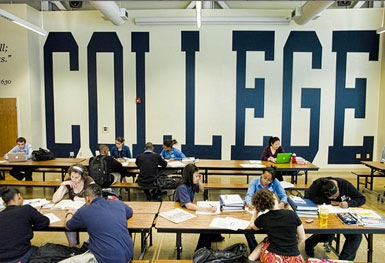
MBTAAnalysis: A look inside the MBTA
0 Comments
/
The MBTA shuttles over a million passengers a day around Greater…
 https://pioneerinstitute.org/wp-content/uploads/CloseupClock-1.jpg
739
1244
Mary Connaughton
https://pioneerinstitute.org/wp-content/uploads/logo_440x96.png
Mary Connaughton2017-02-20 12:34:192017-02-21 09:47:58The Clock is Ticking…….
https://pioneerinstitute.org/wp-content/uploads/CloseupClock-1.jpg
739
1244
Mary Connaughton
https://pioneerinstitute.org/wp-content/uploads/logo_440x96.png
Mary Connaughton2017-02-20 12:34:192017-02-21 09:47:58The Clock is Ticking…….
A Republic of Republics: How Common Core Undermines State and Local Autonomy over K-12 Education
By signing on to national standards and the assessments that will accompany them, participating states have ceded their autonomy to design and oversee the implementation of their own standards and tests. The implications of ceding this autonomy are varied. Not only do some states risk sacrificing high quality standards for national standards that may be less rigorous, but all states are sacrificing their ability to inform what students learn.

Looking Back to Move Forward: Charter School Authorizing in Massachusetts
Thus 20 years after the charter school movement began in Massachusetts, it is at a crossroads. This paper aims to point the Commonwealth in the right direction by exploring the history of charter school authorizations, with an eye to understanding how the current authorization process both sets Massachusetts apart from other states and stands to constrain the continued success of the charter school movement.

Preserving Charter School Autonomy
Three years ago, with great incentive from the federal government, the Massachusetts state legislature raised the cap on charter schools in some underperforming districts across the Commonwealth. The move was welcomed by parents, students, and other concerned citizens in those communities—communities where charters have provided a high quality alternative to the traditional public system.
 https://pioneerinstitute.org/wp-content/uploads/credit-card-3.png
512
1024
Pioneer Institute
https://pioneerinstitute.org/wp-content/uploads/logo_440x96.png
Pioneer Institute2012-04-24 15:18:232020-08-02 15:25:54School Choice Survey
https://pioneerinstitute.org/wp-content/uploads/credit-card-3.png
512
1024
Pioneer Institute
https://pioneerinstitute.org/wp-content/uploads/logo_440x96.png
Pioneer Institute2012-04-24 15:18:232020-08-02 15:25:54School Choice Survey
Houses of Learning
This paper is intended to act as a guide for charter school founders and directors to accomplish what has been called the "devilishly difficult" task of financing a charter school, finding a location, assembling a development team and building the facility, among other requirements. It draws on interviews with charter school administrators, trustees and policy leaders in Massachusetts and other states, as well as data generated by previous studies on the topic.

Education Tax Credits – A Review of the Rhode Island Program and Assessment of Possibilities in Massachusetts
The first part of this brief presents a detailed description of Rhode Island's Corporate Scholarship Tax Credit (CSTC) program, summarizing the key institutional features of the program. The second part of the brief extracts lessons learned from Rhode Island's tax credit program and assesses the possibility of the adoption of a similar tax credit funded scholarship program in Massachusetts.

Charter School Caps and Strings Attached
This white paper attempts to fill that void and outline the pros and cons of the new legislation. It does so by taking a close look at the language of the law, the conditions attached to the charter school cap raise, and the recent politics of charter schooling in the state.

Debunking the Myths About Charter Public Schools
Charter public schools have existed in Massachusetts since 1995, after enabling legislation was included in the landmark Massachusetts Education Reform Act (MERA) of 1993. Originally conceived as laboratories for educational innovation that could offer choice for families and competition for traditional district schools, charters are public schools that may not discriminate as to whom they accept.

Putting Children First: The History of Charter Public Schools in Massachusetts
The story of charter schooling in Massachusetts is, by and large, the story of an idea that took hold at the local level and was quickly adopted by legislators who saw charter schools as one key to addressing devastating problems with the state's urban school districts. It is also the story of diverse groups of constituents—politicians, businesspeople, parents, and concerned citizens—coming together to create innovative schooling options for the Massachusetts students that need them most.

Follow the Money: Charter School and District Funding in Massachusetts
Charter public schools operate under five-year charters from the Massachusetts Board of Elementary and Secondary Education (BESE) and are not part of traditional local school districts. Charters often organize around a core mission, curriculum, or teaching method. They are free from district management and local collective bargaining agreements, and they control their own budget and hire teachers and staff separately from the local school district.

The Know-Nothing Amendments: Barriers to School Choice in Massachusetts
This paper will consider a sad phenomenon in American history—19th-century nativism and in particular, anti-Catholic prejudice—and its lingering and deleterious effects on American primary and secondary education.

School Choice Without Vouchers: Expanding Education Options Through Tax Credits
The school choice movement has suffered a number of severe setbacks during the last decade. California and Michigan voters rejected school voucher ballot initiatives in 2000, state courts in Colorado and Florida ruled that their voucher programs were unconstitutional, and during negotiations over the No Child Left Behind Act, President Bush abandoned provisions that would allow students in failing public schools to switch to private schools. Fifteen years after Milwaukee instituted the nation’s first voucher program, fewer than 35,000 non-special education students receive publicly funded school vouchers nationwide.

Charter Colleges: Balancing Freedom and Accountability
This paper applies the charter school idea to public higher education. It makes the case that deregulation coupled with a charter or agreement with the state will enable institutions to operate more efficiently and will produce higher quality educational results. The argument is based on research comparing highly regulated institutions with more independent colleges across the country, as well as interviews with a number of educational, public policy, and political leaders in Massachusetts. The authors draw on the history of Michigan as well as the more recent experience in New Jersey.

Competition in Education a 1999 Update of School Choice in Massachusetts
This study updates the work done by Armor and Peiser. The author gathered data for two additional years of the interdistrict choice program and similar data for the state’s charter school program as well. This update, for the most part, confirms the demographic findings of the initial study with regard to interdistrict choice. The racial impact on sending districts continues to be negligible. The impact on some of the receiving districts was to increase racial diversity; this positive effect continues and is increasing. Clearly, more minority students are taking advantage of the interdistrict choice program.

Increasing the number of charter schools in the Commonwealth
Increasing the number of charter schools in the Commonwealth was provided in April 1999.
